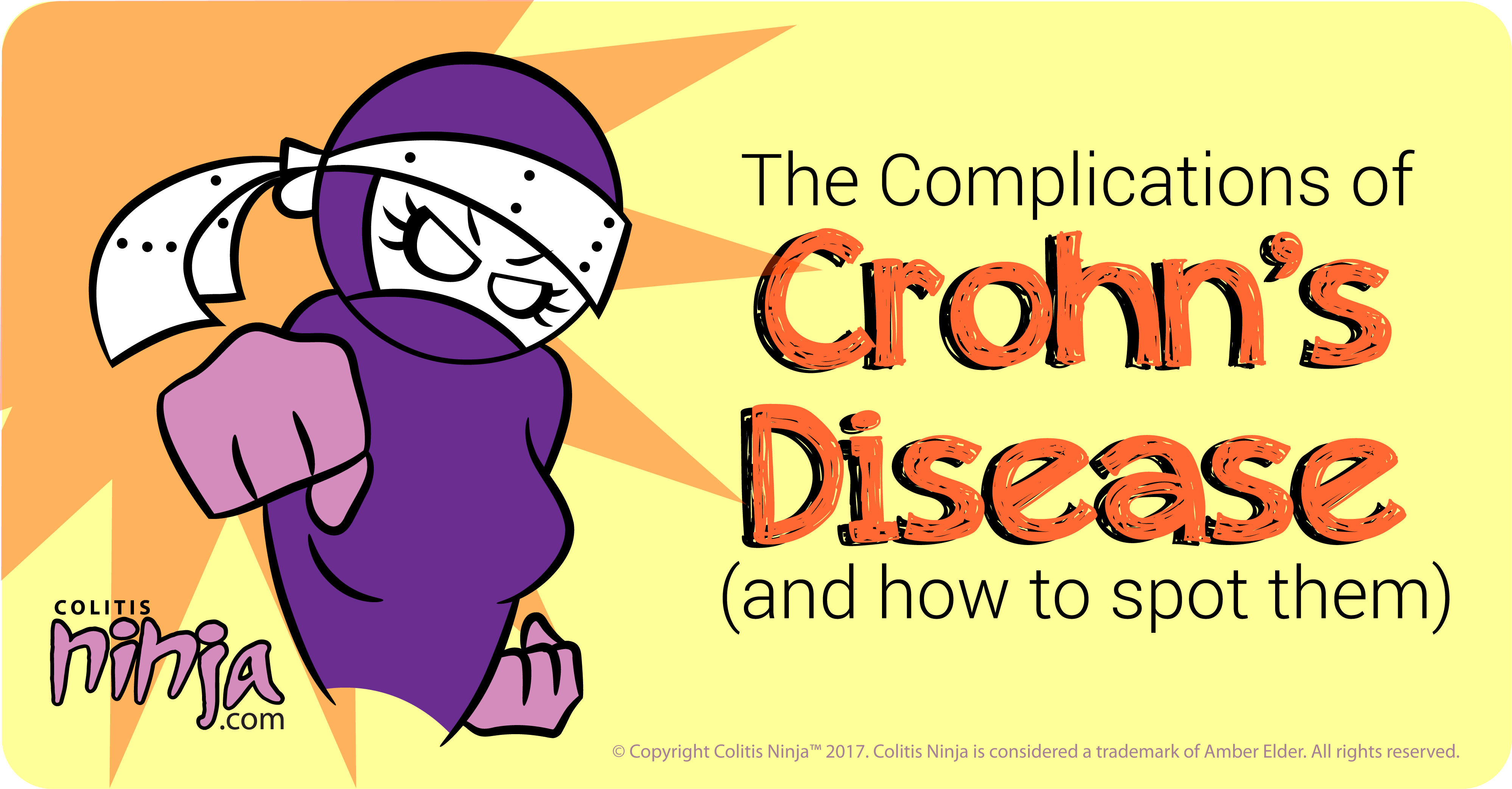
Complications of Crohn’s Disease
(and How to Spot Them)
Living with Inflammatory Bowel Disease is an adventure all by itself. You never know from one day to the next how your day is going to go or what surprises await you. I thought it might be helpful, particularly for new patients, if I wrote a two-part series of complications that can occur with IBD and how to spot them. Last week, we looked at complications of ulcerative colitis. This week, we will discuss the complications of Crohn’s disease. Remember, there are times that the two diseases can merge and crossover with the various complications. In other words, just because UC is more prone to severe bleeding than Crohn’s, doesn’t mean Crohn’s patients can’t experience it, too.
Obstruction
Due to chronic inflammation, the intestines can swell and make passing food and stools difficult. When your intestines swell, it puts you at risk for blockages (bowel obstructions). A twist in the intestines (more common in Crohn’s) can also put you at risk for a bowel obstruction.
Warning Signs
Here are signs of a bowel obstruction. Remember, if you think you might be experiencing an obstruction, seek medical attention!
- belly cramps that come and go
- vomiting
- diarrhea or constipation
- bloating
- “hard” belly
Fistula
A gastrointestinal fistula is an opening in your bowels that cause GI fluids to leak through the bowel walls and into your abdominal cavities, other bowels, or onto your skin. The four main types of fistulas are, intestinal fistulas (gut-to-gut-fistulas), extraintestinal fistulas, external fistulas and complex fistulas. Patients may also experience anal fistulas. Another type of fistula common in women are recto-vaginal fistulas.
Warning Signs
People with diseases of the intestines (such as those with Crohn’s) are more at risk for fistulas. Here are the warning signs:
- abdominal pain
- fever
- diarrhea or constipation
- rectal bleeding
- dehydration
- discharge (or pus)
- skin irritation
Severe Dehydration
Dehydration can occur at any age. We are always losing water from sweat, urination, water vapor in the breath and for patients with UC, watery stools and vomiting. It is extremely important for patients to stay on top of their water intake.
Warning Signs
If you feel like you might be experiencing severe dehydration, seek medical attention. Your doctor may need to give you fluids intravenously.
- increased thirst
- dry mouth
- weakness
- dizziness
- heart palpitations
- confusion
- fainting
- dark/decreased urine output
Anal Fissure
Simply put, an anal fissure is a tear in the lining of the lower rectum. These tears cause pain during bowel movements. Many anal fissures are not serious and can be treated at home. If, however, the fissures become chronic, they will need to be treated by your doctor.
Warning Signs
If you are concerned that you may be experiencing anal fissures, here are things you’ll need to look for. Please remember that you will need to seek medical attention if you feel your fissures have become a chronic problem.
- sharp stinging/burning during/after a bowel movement
- itching
- bleeding
Strictures
Patients with inflammatory bowel disease are at risk for strictures. Strictures occur when inflammation causes scarring in the intestines. Scarring can also occur due to surgery. The more surgeries you’ve had, the bigger the likelihood of developing strictures. Because scars are less “flexible” than other tissue, the passageway in the bowels become narrow. These strictures are more common in people with Crohn’s Disease.
Warning Signs
Because strictures cause intestinal blockages, they share the same symptoms of a bowel obstruction.
- belly cramps that come and go
- vomiting
- diarrhea or constipation
- bloating
- “hard” belly
In Conclusion
Again, it is important to know the warning signs of any and all complications that are associated with IBD. Which is also why it’s important to have a good relationship with your doctor and keep him or her informed of anything that may be concerning you. Your doctor cannot help you if you do not keep him informed of what’s going on and sometimes it could be a matter of life or death!
SOURCES:
Written by Michael Kerr. “Intestinal Blockage Caused by Crohn’s Disease.” Healthline. Healthline, n.d. Web. 06 Apr. 2017.
Bowel Obstruction – Topic Overview.” WebMD. WebMD, n.d. Web. 06 Apr. 2017.
Medically Reviewed by Steven Kim, MD on November 13, 2015 — Written by Sandy Calhoun Rice. “Gastrointestinal Fistula.” Healthline. Healhline, 13 Nov. 2015. Web. 06 Apr. 2017.
“Dehydration in Adults.” WebMD. WebMD, n.d. Web. 28 Mar. 2017.
“Anal Fistula.” WebMD Boots. WebMD, n.d. Web. 06 Apr. 2017.
“Inflammatory Bowel Disease (Intestinal Problems of IBD) Symptoms, Treatment, Causes – What Are Symptoms of Intestinal Strictures, and How Are They Diagnosed and Treated?” MedicineNet. MedicineNet, n.d. Web. 06 Apr. 2017.



